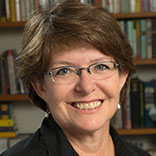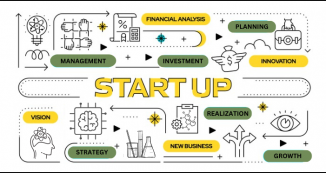
18 Sep UW Students Get Crash Course in Tech Commercialization
For 10 weeks this summer, a group of University of Washington graduate students spent more than 30 hours each week trying to answer a single question: would this product do well in the marketplace?
Their answers were part of the Institute of Translational Health Sciences’ and Washington Research Foundation’s Summer MBA Fellowship program, which provides graduate students an opportunity to experience the process of building a commercialization plan for a promising technology. The fellowship awards six students with $8,000 stipends each and is managed by the Buerk Center for Entrepreneurship, with support from ITHS, WRF, and UW’s CoMotion.
In June, each fellow chose the early-stage technology he or she wanted to focus on. The fellows then worked with the inventors, as well as mentors from ITHS, WRF, the Buerk Center for Entrepreneurship, and CoMotion, to evaluate the technology’s commercial potential.

Connie Bourassa-Shaw, Director of the UW Buerk Center for Entrepreneurship
The fellowships were divided into three phases: technology discovery and evaluation, market opportunity assessment, and product assessment. To evaluate the technology, the fellows needed look at marketing, financials, research, technology and more, says Connie Bourassa-Shaw, Director of the UW Buerk Center for Entrepreneurship. “The fellowship gives students the opportunity to use skills they’ve learned in MBA classes in a project that can be well outside the realm of MBA-dom.”
At the end of August, they presented their findings to the inventors and representatives from ITHS and WRF, the Buerk Center, and CoMotion.
MBA student Brian Conley presented on the commercialization of POLYStat, a new injectable polymer that strengthens blood clots. Administered in a simple shot, the polymer finds any unseen or internal injuries and starts working immediately to create a natural bandage.
The fellowship exposed him to the different elements needed to create a business and get it off the ground, says Conley. “For me in particular, because I’ll likely transition into an advisory role after school, I think it’s very helpful to have worked with the different parties and been asked to make recommendations.”
The students and principal investigators (PI) both benefit from the fellowship, says Bourassa-Shaw, adding that, “For students who want careers in tech innovation, this is the perfect experience. The fellowship teaches students what has to happen to take technology from a research lab, particularly a university research lab, and move it toward the marketplace.”
For PIs, working with the fellows often provides the first business-focused look at their technology. “What they often find is that there are a lot of steps that still have to happen,” says Bourassa-Shaw. “They’re seeing their technology a little more from the eyes of someone who isn’t married to it. It’s like a third-party valuation.”
The 2015 ITHS and WRF Summer Fellows and their projects:
PolySTAT Injectable Polymer
PolySTAT Injectable Polymer
Fellow: Brian Conley
PI: Suzie Pun (Bioengineering) and Nathan White (Emergency Medicine)
CoMotion Technology Manager: Roï Eisenkot
PolySTAT, a new injectable polymer that strengthens blood clots. Administered in a simple shot, the polymer finds any unseen or internal injuries and starts working immediately.
LearnTogether
LearnTogether
Fellow: Nneka Ezeabogu
Project Lead: Bob Boiko, UW Senior Lecturer
CoMotion Technology Manager: Gail Dykstra
LearnTogether is a learning management system for professional training that combines cutting edge learning techniques with sophisticated social networking to let a group of related professionals learn together.
RainCity HeartLab
RainCity HeartLab
Fellow: Kevin Biealwski
UW PI: Jay Heinecke, UW Medicine
Business Mentor: Erik Nilsson
CoMotion Technology Manager: Lindsie Goss
RainCity HeartLab’s product is a diagnostic test for heart disease, termed CALLIS (Calibrated Lipoprotein Ion Separation), to be used by physicians to estimate the risk of future adverse cardiovascular disease events such as heart attack.
Smart Lenses
Smart Lenses
Fellow: Heather Lewis
Project Lead at Smart Lenses: Dr. Nerea Alayo
Founding Team: Prof. Karl F. Bohringer, Prof. Tueng T. Shen, Dr. Nerea Alayo and Dr. Mike T. Khbeis
CoMotion Technology Manager: Forest I. Bohrer
Smart Lenses is a new ocular biomedical devices start-up based in Seattle, WA. The start-up’s first product is an Intraocular Pressure sensor that allows the continuous monitoring and early detection of glaucoma.
Improved Angle Prosthetic
Improved Angle Prosthetic
Fellow: Megan Seeb
Principal Investigator: Murray Maitland, Department of Rehabilitation Medicine
CoMotion Technology Manager: Ryan Buckmaster
A prosthetic foot developed by UW researchers that features a novel mechanical system that automatically adapts to rough ground while still being robust enough for everyday use and affordable.
SMART-Cart
SMART-Cart
Fellow: Karin Li
Principal Investigator: Don Stephanian, Development & Design Manager, Seattle Children’s Hospital
The Synchronous Mobile Audio-visual Recording Technology Cart (SMART-Cart) provides a fast and reliable option to facilitate video-enhanced debriefing that is physically integrated into a clinical setting.
For more information on the projects and fellowship, please visit the Buerk Center for Entrepreneurship’s website.







